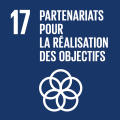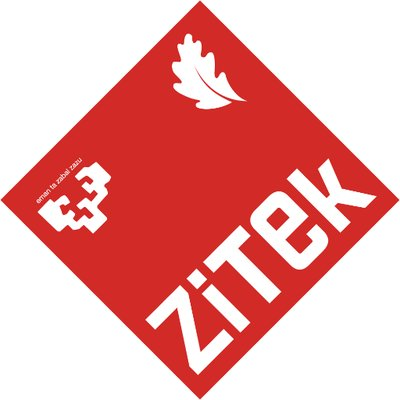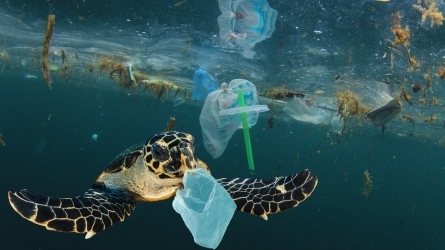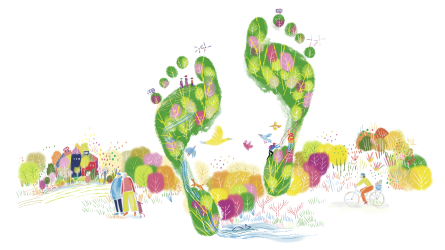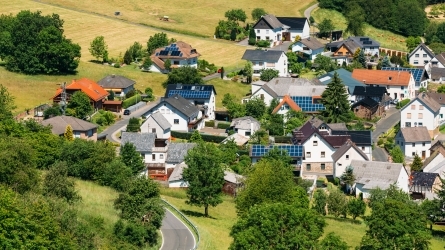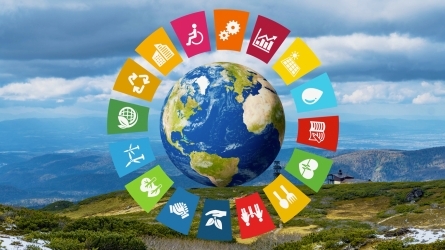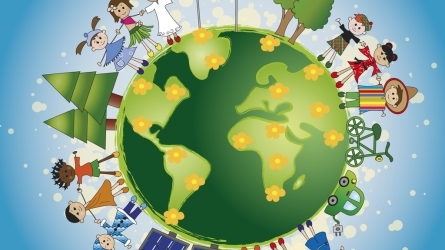
Biotecnología, Biomedicina y Biomimesis en armonía con la naturaleza, nuevas perspectivas
Description
Through this Summer Course, the aim is to get the public to analyze and understand the importance of communicating and establishing bridges between scientific, technological and social disciplines that work in harmony with Nature,
in the current climate emergency situation. Furthermore, it is intended that they understand and participate in the solutions proposed from the different disciplines: Science, Technology, Medicine, Economics and Architecture, among others with the common denominator that they are harmonious with Nature. Innovative programs such as Harmony with Nature of the United Nations will be sought, which advocates providing Rights to Nature; as well as, transdisciplinary solutions consistent with the previous program such as Biomimicry.
Objectives
Analizar, comunicar y establecer puentes entre las disciplinas científicas, tecnológicas y sociales que trabajan desde la armonía con la Naturaleza.
Interpretar en clave sostenible la problemática del cambio climático aportando soluciones que sean armónicas con la Naturaleza.
Aportar soluciones de programas innovadores como el de Harmony with Nature de Naciones Unidas que aboga por dotar de Derechos a la Naturaleza.
Activity directed to
- University student
- Students not from university
- Teachers
- Professionals
In collaboration with
Directors

Mª Estrella Sánchez Corchero
UPV-EHU, experta en Economía Ecológica del programa Harmony with Nature, HwN, de la Organización de Naciones Unidas, ONU
Graduate in Economics and Business Studies, specialising in International and Development Economics from the University of the Basque Country. PhD in Economic Anthropology, MA in Chinese Studies, MA in Economic Analysis and BA in Economics and Business Studies, lecturer at the Universities of the Basque Country, European University of Madrid and Isabel I of Castile. Member of Harmony With Nature of the United Nations, as well as of the International Association of Ecological Economics. She is also a member of the Governing Board of the Basque Association of Economists and of the Teaching and Researchers, Urban Planning and Strategic Plan Commissions. He received the 2nd prize for business creation organised by the Basque Government Department of Economy in 1997. I have a PL2 in Basque which allows me to teach in Basque.
Hernando Bernal Zamudio
UPV/EHU, experto en Ciencia Holística del Programa HwN de la ONU
Agrologo, Maestría en Desarrollo Rural, PhD. Estudio de Desarrollo y Cooperación Internacional. PhD(c) Agroecologia, Sociología y Desarrollo Rural Sostenible. Presidente de la Asociación Amassunu para Impulso de la Interculturalidad y la Biomimesis. Cofundador de la Red Internacional, Interuniversitaria e Interinstitucional de Estudio de Biomimesis. Profesor de la Maestría en Medio Ambiente, Sostenibilidad y los Objetivos de Desarrollo Sostenible (ODS), Cátedra Unesco de Desarrollo Sostenible y Educación Ambiental, Universidad del País Vasco. Profesor de la Maestría en Agroecología, soberanía alimentaria, agricultura urbana y cooperación al desarrollo rural. Universidad de la Laguna. Coautor del documento para la UNESCO, BM, PNUD, FAO, FIDA, UNICEF, IICA: “Análisis de la evolución de los sistemas del conocimiento, ciencia y tecnología en América Latina y el Caribe. Su efectividad e impacto”. Capítulo 2. Sub Global Reports.
Registration fees
| Face-to-face | Until 31-05-2024 | Until 17-09-2024 |
|---|---|---|
| 25,00 EUR | 59,00 EUR | |
| - | 84,00 EUR | |
| - | 71,00 EUR | |
| - | 59,00 EUR | |
| - | 71,00 EUR | |
| - | 71,00 EUR |
| Live online | Until 31-05-2024 | Until 17-09-2024 |
|---|---|---|
| 25,00 EUR | 59,00 EUR | |
| - | 84,00 EUR | |
| - | 71,00 EUR | |
| - | 59,00 EUR | |
| - | 71,00 EUR | |
| - | 71,00 EUR |
Venue
Bizkaia Aretoa-UPV/EHU
Avenida Abandoibarra, 3. 48009- Bilbao
Bizkaia
Bizkaia Aretoa-UPV/EHU
Avenida Abandoibarra, 3. 48009- Bilbao
Bizkaia
Sustainable development goals
Agenda 2030 is the new international development agenda approved in September 2015 by the United Nations. This agenda aims to be an instrument to favour sustainable human development all over the planet, and its main pillars are the eradication of poverty, a reduction in equality and vulnerability and fostering sustainability. It is a unique opportunity to transform the world up to 2030 and guarantee human rights for all.

3 - Good health and well-being
Guarantee a healthy life and foster the well-being of all people of all ages. Key issues: universal healthcare coverage, sexual and reproductive health, reduction in the number of road accident casualties, pollution and chemical products, reduction in maternal and neonatal mortality, the end of epidemics such as AIDS, combating hepatitis and other water-borne diseases, drug and alcohol prevention, control of tobacco.
More information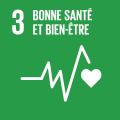
6 - Clean water and sanitation
Guaranteeing the availability and sustainable management of water and sanitation for everyone. Key issues: universal and fair access at an affordable price, access to sanitation and hygiene services, water quality, efficient use of water resources, end-to-end management, protection of water ecosystems, reduction of pollution, elimination of waste discharges, wastewater treatment.
More information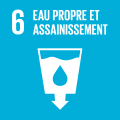
7 - Affordable and clean energy
Guaranteeing access to affordable, reliable, sustainable and modern energy for everyone. Key issues: universal access, increased proportion of clean energies, energy efficiency, research, fostering investments in energy infrastructures and clean technologies, modern and sustainable energy services.
More information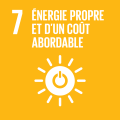
9 - Industry, innovation and infrastructure
Build resilient infrastructures, promote inclusive and sustainable industrialisation and foster innovation. Key issues: reliable, sustainable, resilient and quality infrastructures, inclusive and sustainable industrialisation, modernisation, clean and environmentally rational industrial technologies and processes, scientific research and improvement of technological capabilities, universal access to ICTs.
More information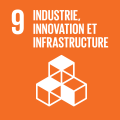
11 - Sustainable cities and communities
Make cities and other human settlements inclusive, safe, resilient and sustainable. Key issues: access to suitable housing and basic services that are secure and affordable, suitable and sustainable transport systems, inclusive urban planning, participative planning and management, protection of cultural and natural heritage, air-quality, green zones, and connections between urban, peri-urban and rural areas.
More information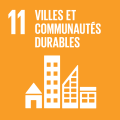
14 - Life below water
Conserve and sustainably use the oceans, seas and marine resources for sustainable development. Key issues: reduction of marine pollution and acidification of the oceans, protection of marine ecosystems, re-establishment of the health and productivity of the oceans, conservation de coastal and marine areas, elimination of over-fishing and poaching, support for traditional fishing, increased scientific knowledge.
More information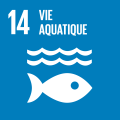
15 - Life on land
Protect, establish and foster the sustainable use of terrestrial ecosystems, manage forests sustainably, fight desertification, hold back and reverse the degradation of land and delay the loss of biodiversity. Key issues: the fight against desertification, reforestation, conservation, the regeneration and sustainable use of terrestrial ecosystems, natural habitats, biodiversity, invasive exotic species, integration of the values of ecosystems into planning, poaching.
More information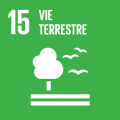
17 - Partnerships for the goals
Strengthen the means of implementation and revitalise the World Alliance for Sustainable Development. Key issues: mobilisation of resources, 0.7% of GDP for official overseas development aid, finances, cooperation in technology and innovation, ecologically rational technologies, skills building, universal and multilateral trade system, coherence on the legislative and institutional levels, availability of data, supervision, indicators and accountability.
More information